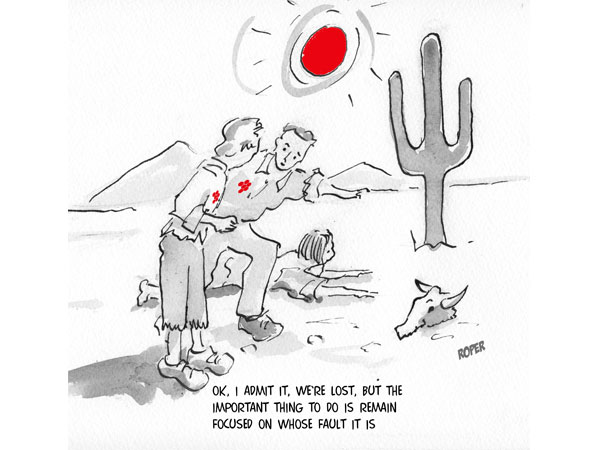Fight, flight or freeze? It’s not that simple. Here are some strategies to deal with post pandemic feelings of uncertainty and threat in the workplace.
Your brain is hard-wired to be risk averse. Covid 19 has created widescale and unprecedented levels of uncertainty, with the result that you, like many other people, may be feeling jittery and exhausted.
As organisations get back on their feet and design a new way of working, how can you help yourself and others to restore some equilibrium?
This article looks at these challenges in the workplace and at three science-based strategies to lift your own and others’ performance and well-being.
We need firstly to understand the physiological impact of this prolonged period of ‘threat’ that we’ve all been experiencing. In Thinking, Fast and Slow Daniel Kahneman explained how the brain works on two levels (System 1 and System 2) and the inherent benefits and pitfalls of both. If you know what your brain does well and what it does rather poorly, you can have a better sense of the strategies you need to flourish, especially in these uncertain times.
Simplistically, System 1 is when you’re on autopilot and you don’t perceive any particular uncertainty or immediate threat. It’s when you walk the same route to work and hardly remember how you got there, do a familiar exercise routine and suddenly it’s the end of the workout, or sing along to a favourite song and know all the words. It’s the stuff you can do ‘standing on your head’.
At other times, when faced with difficult problems, new situations, uncertainty or threat, your brain defaults to System 2. This uses more energy (literally more calories) and cognitive resource.
Of course, there were always challenges and uncertainty in the workplace, but in one sweep Covid took away the few relatively predictable elements:
- Where you spent the working day
- How tech savvy you needed to be
- Your relationships with clients
- Collaborating with colleagues
- Whether you need to wear proper shoes for meetings.
Our brains have undergone this prolonged and strong state of threat, and for some that has precipitated actual depression and anxiety. For others, the response has been not only the physiological responses of flight, fight or freeze but also a sustained:
- Decrease in co-operative behaviour
- Lack of motivation, focus and engagement
- Inability to exercise self-control
- Feeling of hopelessness and no sense of purpose.
Under these circumstances, you need to look to strategies designed to help your brain deal with the fallout of prolonged uncertainty.
- Set expectations for yourself that are both optimistic and realistic
In recent years there’s been a move towards positive psychology and motivation. In exceptionally difficult times however, you will do better if you incorporate a healthy dose of realism in your outlook and your strategies. Studies show that prisoners of war who were most resilient were those who were optimistic that the war would end and they would survive, but realistic about the time frame.
You need to believe that in time everything will work out but accept that in the meantime it might not be easy. You will need a strong sense of self-efficacy.
- Think of the bigger picture
To counter feelings of hopelessness it helps to think about the bigger meaning or purpose of your actions. In the workplace, as a leader, you need to reinforce the idea that each individual job is integral to an important purpose or vision. It also helps to focus on the ‘experience’ being provided rather than just the ‘task’. The financial reporting that you do for your client is not just a report with facts and figures, it is also (hopefully) providing a service that alleviates their stress in some way.
- Honesty is the best policy
If your organisation culture wasn’t built on trust, employees are unlikely to tolerate a return to the status quo – especially if they’re millennials or Gen Z (A study shows that 34% of millennials working in the US are planning to leave their current jobs and look for a new one when the pandemic is over).
As a leader you need to prioritise consistent and honest communication to build a new way of working. People are already on ‘high alert’ and instinctively know when they’re only getting half the story. The uncertainty this causes will re-create that feeling of threat everyone’s experienced during the pandemic. Moving away from uncertainty through honesty is key to the healthy culture of your organisation, and ultimately to the success of your business.
If you would like to have a chat about any of the issues raised in this article, please do get in touch with us at Leaders Lab.
Amanda Baines: ab@leaderslab.co.uk | 07770 221166
Kate Mercer: km@leaderslab.co.uk | 07801 259637
